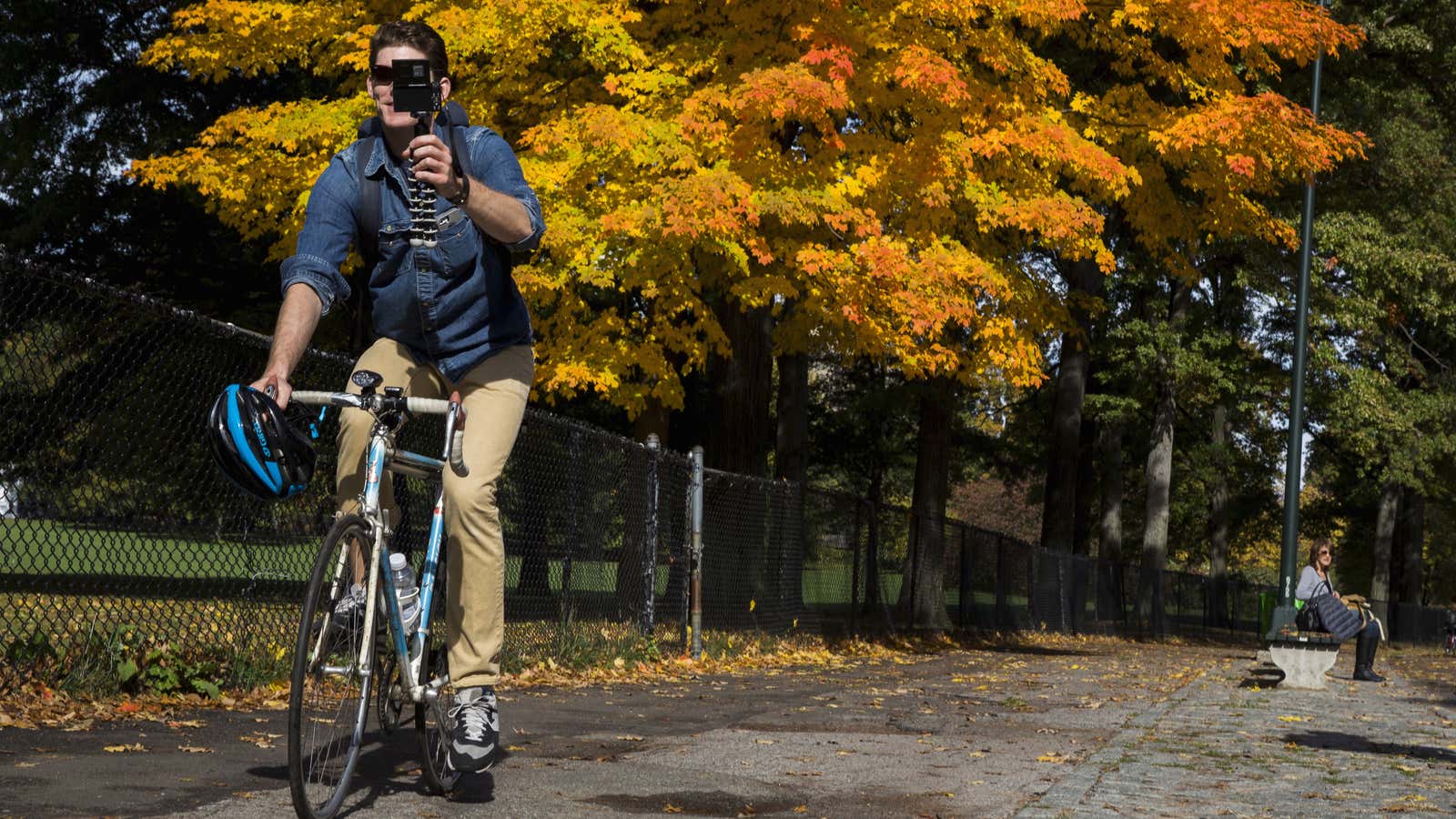A man who livestreamed his child’s birth to the world on Facebook is suing CBS and MSN for sharing. Kali Kanongataa filed a copyright infringement claim in federal court in New York on Sept. 22, demanding money and an injunction to stop unauthorized use of his video, which he says is the first live Facebook birth (a fact that’s unverifiable). His copyright claim is typical of the digital age. It puts the media companies in a pickle.
If the defendants argue fair use–an exception to copyright law under which news coverage falls–they may undermine their own originally produced material Most media outlets want strong copyright protection of their content. Moreover, fair use arguments have failed when used by other news agencies. France’s AFP and Getty Images were sued in 2010 by photographer Daniel Morel for taking a photo from Twitter; they argued fair use and lost–it cost them $1.2 million.
Fair use is an exception in copyright law. Usually you need a license or permission to use someone else’s content, except to the extent that the culture demands access. The fair use doctrine allows for criticism, comment, reporting, teaching, scholarship, and research. Without it, there probably wouldn’t be much news, and no reviews. Scholars and researchers couldn’t build on each others’ findings, and satirists couldn’t take jabs at protected works, for example.
There are limits to the exception, though. Courts weigh four factors to ultimately determine if fair use protections apply, analyzing the use, the copyrighted work, how much was used, and its effect on the copyrighted work’s value. The first factor focuses on how transformative a use is as compared to the original, as well as whether it serves a commercial purpose. In 2013, Fox News was sued by the North Jersey Media Group (NJMG) and tried to defend its post of an unlicensed image on Facebook by claiming transformation and arguing its purpose was not commercial.
It argued that an online, unlicensed photo–of firemen preparing to raise a flag at the site of the 9/11 bombings in New York combined with soldiers raising the US flag over Iwo Jima in World War II–was further transformed by cropping and an added hashtag (#neverforget). It was posted on the 12th anniversary of 9/11 and, Fox said, was created for comment and audience engagement, not commercial purposes.
Fox moved to dismiss the case but was denied and ultimately settled. The court found its use was not clearly fair, not transformative and had a commercial purpose damaging to the value of the original work–the image of firefighters had earned the plaintiffs NJMG more than $1 million. In a request for reconsideration that was also denied, Fox’s lawyers wrote, ”All news or commentary programs—and indeed…all other forms of communication—aspire to connect with an audience. This obvious fact does not make their…speech any more ‘commercial.’ “
The Facebook livestream birth case is distinct, however, as Kanongataa isn’t in the media business, like NJMG, nor a professional photographer like Daniel Morel in the AFP case. Even if Kanongataa’s video is copyrighted, the potential damage to its commercial value isn’t clear. The plaintiff claims it was the first Facebook birth and that was news in May, in part due to the charming error Kanongataa made.
He said then that he didn’t intend to stream the birth to the whole world, just to family in Tonga. But when he discovered his mistake, he continued streaming and made headlines. The story was widely covered and a video excerpt that Kanongataa later uploaded was shown by CBS and MSN…as news.
Representatives for CBS and MSN were not immediately available for comment. The case is in the early stages. But the questions it presents are pressing and increasingly relevant to people not officially in the media. We are all content creators now, so everyone needs to know what happens–can we recover damages?–when our most precious moments are posted without permission.
